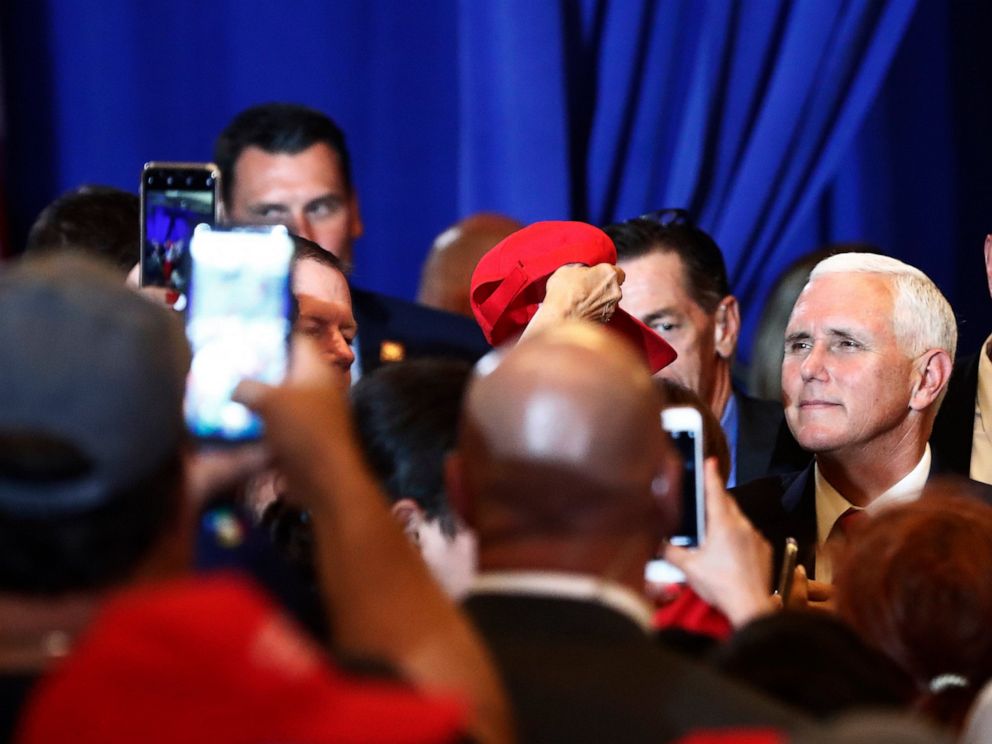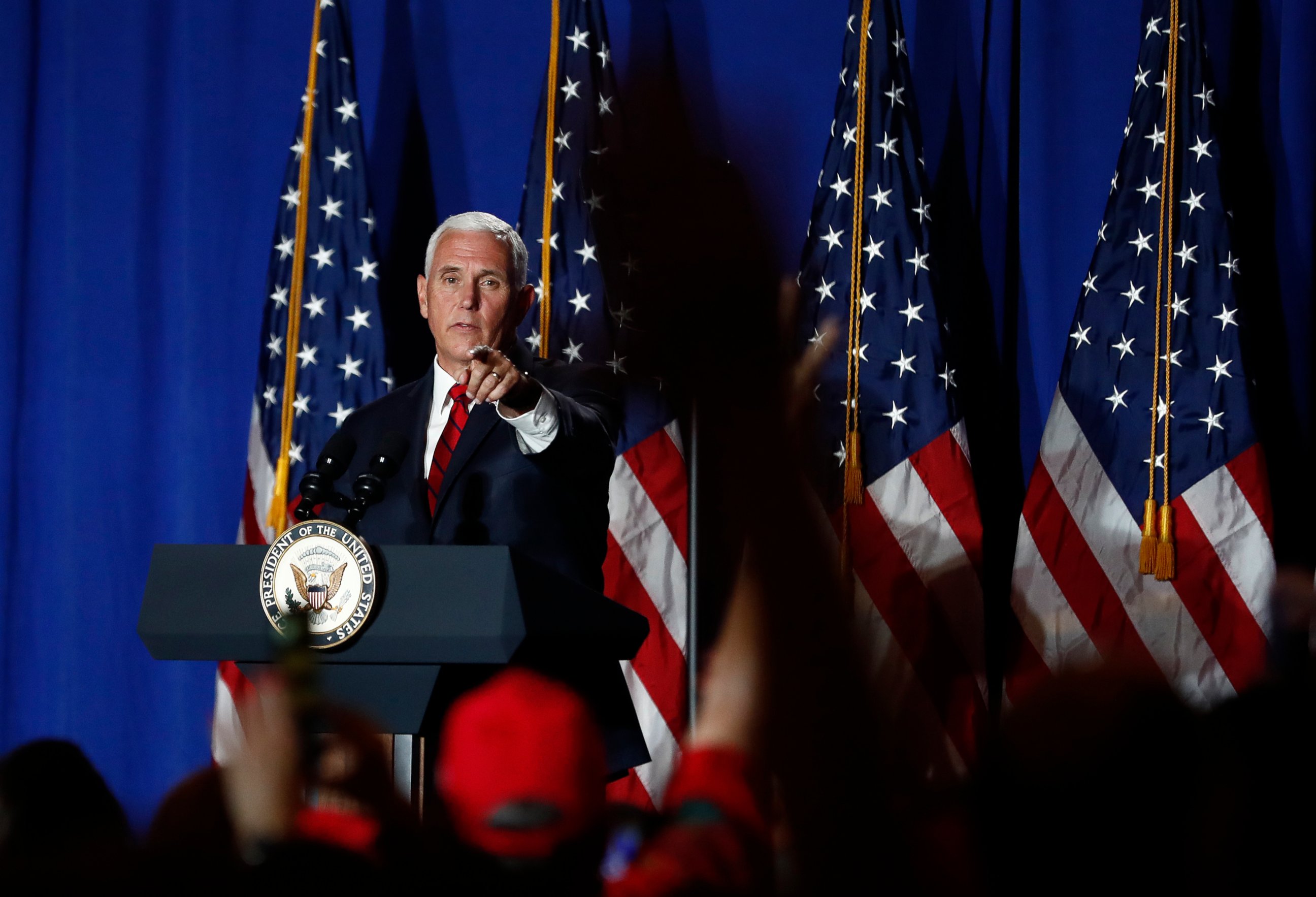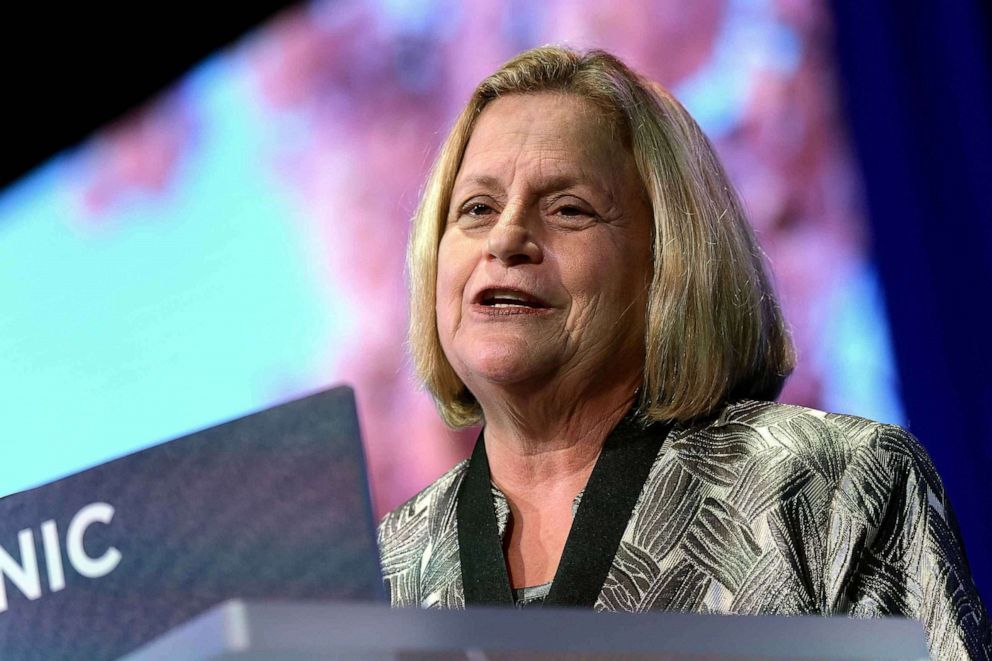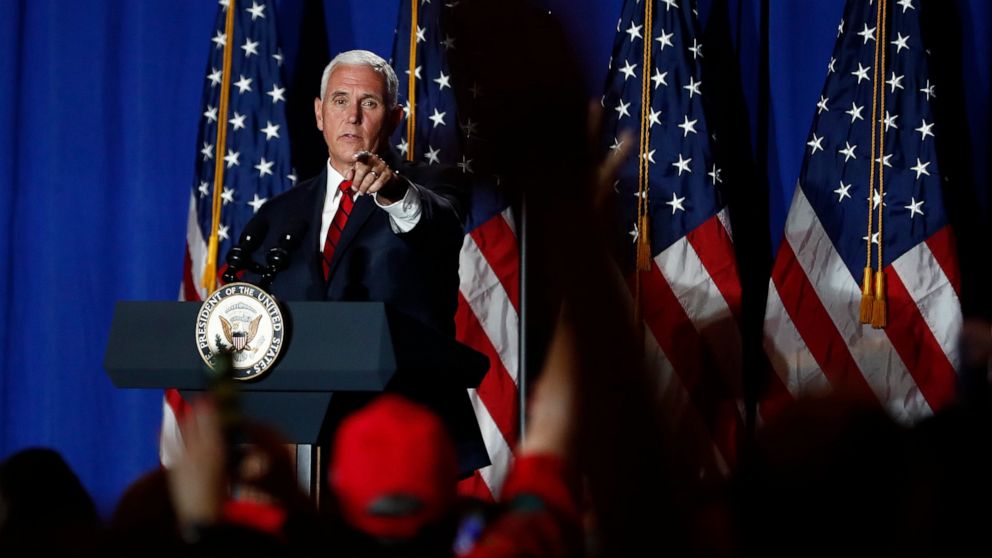Vice President Pence rolls out 'Latinos for Trump,' slams Democrats ahead of debate
Vice President Mike Pence helped roll out the Trump campaign’s first 2020 coalition in Miami on Tuesday, less than 10 miles away from where Democrats are set to take the stage for their first primary debate a day later.
During the around 45-minute speech kicking off the new effort aimed at turning out Latino voters, the vice president was clearly in campaign mode, often making the event feel like a mini Trump rally -- "lock her up" and "build the wall" chants and all. The event took place at DoubleTree by Hilton Hotel Miami Airport & Convention Center, with a few hundred people in attendance.
According to campaign aides, the "Latinos for Trump" roll out in Miami is part of the reelection campaign's counter programming strategy ahead of the this week's first Democratic debates with a goal of getting the vice president on the ground early in the Sunshine State to paint the Democrats as far-left radicals.
During his speech, Pence offered an early rebuttal to the 20 Democrats who will have two nights all to themselves starting Wednesday night, often pegging the entire group as radicals who want to bring socialism to the country, while shying away from naming or singling out any individual candidate by name.
"Democrats are going to gather here in Miami tomorrow night to begin to make their case to the American people.I mean they're gonna take they're going to take the stage," Pence said.
"They're actually going to take the stage and advocate more taxes, more regulation -- something called Medicare for All," Pence told the receptive crowd. "I think you all know what Medicare for All really means is quality health care for none. ... Latino Americans know better than most about the cost of socialism."

While Pence didn’t name any 2020 Democrat directly, taking a page out of the president’s reelection speech, he did make a passing reference to former Vice President Joe Biden’s reversal on the Hyde Amendment.
"It's amazing to think we live in a time when Democrats running for president are out there advocating late term abortion and defending and now probably tomorrow night you're gonna see there's now seems to be even a litmus test in the democratic campaign for president, that the taxpayer funding of abortion I guess is now required for all of their candidates to be supported throughout pregnancy," the vice president said, seemingly alluding to 2020 Democratic front-runner former Vice President Joe Biden's recent reversal on the Hyde Amendment.
The campaign argues that the president's economic record throughout his first term in office will help to boost his appeal with Latino voters, which includes the lowest unemployment rate -- 4.2% -- for Americans of Hispanic or Latino ethnicity on records since 1973. As well as Trump's tough stance toward China and the administration's backing of uprisings in Venezuela and Cuba.
A source close to the campaign tells ABC News that the timing of the "Latinos for Trump" rollout in Miami plays right into the campaign's larger, in-flux, counter-programming strategy for the first 2020 Democratic debate. Trump took 29% of the Latino vote in 2016, making good on his long-held prediction of topping Romney, who took 27% of the Latino vote in 2012.
Hispanics are projected to become the largest minority group in the electorate in 2020, with 13.3%, surpassing African Americans.

The coalition announcement comes days after the president promised to begin deporting "millions" of people next week, the same week "Latinos for Trump is set to launch. A U.S. official told ABC News the deportations described by the president on Twitter aren't imminent.
Aspects of Trump's immigration strategy have faced intense criticism, including the short-lived zero-tolerance policy that resulted in children being separated from their parents while crossing the Southern border. The Trump administration rescinded the policy last June.
However, the campaign claims the president's hardline stance on immigration is one of its strongest assets to attract more Hispanic voters in 2020.
"Many Latinos agree with the president's position on illegal immigration," Trump campaign communications director Tim Murtaugh told ABC News. "A lot of people who followed the rules to come to this country think that others should follow the rules too."
Albert Morales, who used to lead the Democratic National committee's Hispanic affairs office, doubts the president's economic record will be enough to boost Latino turnout in his favor.
"There are 40 former GOP members of Congress who employed that strategy last November. It didn't work for them, and it certainly won't work for Donald Trump," Morales told ABC News. "Latinos remain as enthusiastic about voting in the upcoming presidential primary as they did during the final days leading up to the 2018 midterm election."
Another part of the campaign's strategy will be reaching Hispanic voters on television.
Trump recently sat with Telemundo anchor José Diaz-Balart for his first interview with the Hispanic television network since taking office. Two weeks ago the campaign said it's looking to put resources in New Mexico and Nevada, two states with significant Hispanic populations.
But for the Trump campaign, selecting Miami as the location to roll out its "Latinos for Trump" initiative a day before the first Democratic debate is a matter of timing and location.
Florida's 27th Congressional District, which includes Miami, is often described as the "ultimate melting pot" by residents and local candidates. More than 70% of the district identifies as Hispanic, according to the U.S. Census.

While Rep. Ileana Ros-Lehtinen became the first Latina elected to Congress after winning in the 27th Congressional District, after she retired the district flipped blue in the 2018 midterms.
Voters in that district, which includes downtown Miami, Miami Beach, Coral Gables, Key Biscayne and surrounding neighborhoods, voted for Ros-Lehtinen in previous elections but also voted for Democratic presidential candidate and former Secretary of State Hillary Clinton in 2016. Trump narrowly won Florida in 2016. And the president's allies see rallying support in that type of congressional district early on as crucial, especially if the 2020 race is tight.
A source close to Ros-Lehtinen and the Florida GOP told ABC News that a winning strategy for Trump is all about appealing to the demographic density in the state -- adding Hispanic voters who aren't hard right-wing supporters but believe it's better than the alternative. The president's rebuke of socialism is appealing to voters in communities where families fled socialist dictatorships and are fearful of Democrats like Vermont Sen. Bernie Sanders and New York Rep. Alexandria Ocasio-Cortez, according to the source.
The campaign plans to launch additional coalitions on a rolling basis over the coming months, with one aimed at women voters likely next, according to those familiar with the plans.




